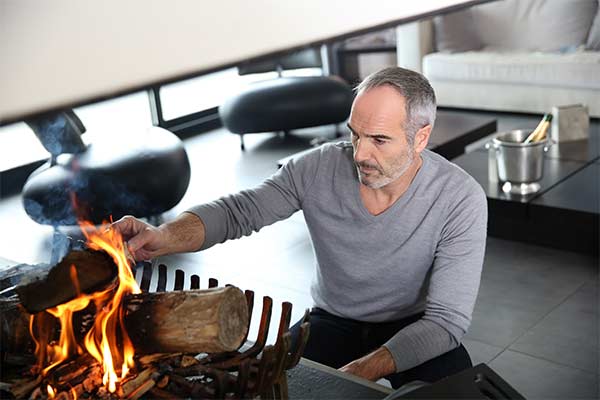Our companies are backed by the Best Pick Guarantee. Call one today!
Everyone loves a fun summer evening around the fire pit, but careless burning practices could cause much more serious harm than just a few burnt s’mores. By cultivating responsible burning habits and following local burning policies, you can ensure that your happy evening around the fire is safe for everyone.
Check Before You Burn
 Before feeding anything to the flames, make sure the material you’re planning to burn won’t release harmful fumes during incineration or produce stray embers that could lead to an uncontrolled fire. Untreated wood is perfectly safe to burn, but many seemingly innocuous materials can pose health or fire hazards if they are burned. In addition, neglecting your local open burning regulations could be not only dangerous but also illegal. The following materials should not be burned:
Before feeding anything to the flames, make sure the material you’re planning to burn won’t release harmful fumes during incineration or produce stray embers that could lead to an uncontrolled fire. Untreated wood is perfectly safe to burn, but many seemingly innocuous materials can pose health or fire hazards if they are burned. In addition, neglecting your local open burning regulations could be not only dangerous but also illegal. The following materials should not be burned:
- Particle board, plywood, ocean driftwood, or any wood that is pressure treated, coated, painted, rotted, moldy, or diseased
- Plastics
- Trash
- Paper and cardboard
- Christmas trees
- Anything specified as not burnable by your state’s open burning policies
Fire Safety Tips
 The EPA offers several helpful tips on how to burn safe materials responsibly and legally. Even if you’re burning something completely nontoxic and benign, it’s important to build and maintain the fire as carefully as possible.
The EPA offers several helpful tips on how to burn safe materials responsibly and legally. Even if you’re burning something completely nontoxic and benign, it’s important to build and maintain the fire as carefully as possible.
- Always use dry kindling, a natural fire starter, or a log lighter to start your fire—do not use charcoal, kerosene, or gasoline.
- Before using an artificial log, make sure it is meant to be used with the type of hearth or fire pit you plan to use.
- Use a metal container to hold any ashes you clean up.
- If your fireplace or other burning apparatus has doors or a screen, keep it closed unless you are stoking the fire.
- Avoid burning anything at times or locations prohibited by your local burning codes.
- Anything flammable, such as upholstery or paper, should be kept away from the flames.
Always consult the open burning policies for your state to make sure that you have any permits you need and that everything you want to dispose of or use as kindling is legal to burn. Being smart about how and what you burn is the best way to avoid the dangerous effects of uncontrolled fumes and flames.


























